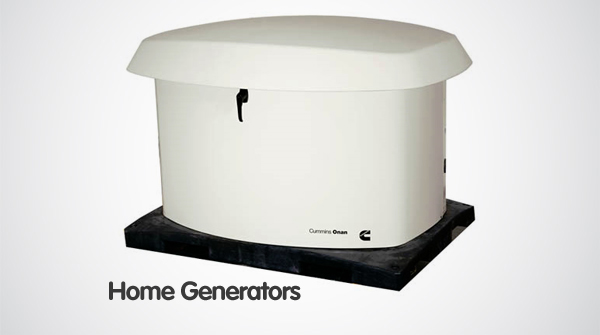Home Generators

* This site contains affiliate links for which we may be compensated.
Home generators are standby generators that are used by homeowners as a back-up to their electrical system during utility outages. As opposed to portable generators, they are permanently installed along concrete surfaces in the home. These generators feature automatic switches that sense power outage minutes after a blackout and instruct the generator to turn on.
Do I Need A Home Generator?
Individuals residing in areas with frequent power outages can benefit from having a generator in their home. Ultimately, investing in a generator can avert other costly expenses such as repairing a flooded basement or disposing of a refrigerator full of spoiled food. Other benefits include; avoid looting and frozen pipes in case of a blackout during winter.
Smaller air-cooled essential-circuits are ideal for individuals with smaller properties since they can only energize a few circuits. If you live in a large house, consider investing in a liquid-cooled whole-house system that performs just as their name indicates – they’ll light up your entire property.
Home Generators Hazard and Safety Tips
For an accurate estimation of the amount of power you need, it is recommended that you contact a skilled electrician who will be able to guide you accordingly. You will also need the assistance of an electrician to connect the generator to your house’s wiring and install a power transfer switch. A power transfer switch should always be installed based on the guidelines provided by the National Electrical Code (NEC). These guidelines are published by the National Fire Protection Association and are available to most trained electricians.
Here are a few safety tips to consider when installing a generator on your property:
– Avoid using portable generators inside your home.
– Ensure that your generator is connected correctly to the circuit to avoid electrical hazards.
– Do not leave your generator running when you’re away from your property.
– Take the time to read through the manufacturer’s safety guide.
– Inspect your generator regularly while running.
– Avoid touching hot areas of the generator during operation.
Buying Guide and Tips
When buying a generator for your home ensure that you find one that is rated for the amount of power your home runs on. Examine the labels on your home appliances, equipment, and lighting, to accurately determine the amount of power your generator should provide. The wattage of the bulbs in your house would indicate the amount of power required for lighting. Refrigerators and other appliances usually come with the power requirements on their distinct labels.
Select a generator that produces more power than your home requires for appliances, lighting, and equipment that will be connected to the system. If your generator does not produce sufficient power you will have to forgo some of your appliances during a power outage. If you choose not to, then you may end up damaging some of the equipment connected to the system.
Having a generator in your home is a great way to avoid additional expenses that may arise after a long power outage. Before purchasing a generator ensure that it’s ideal for your property and always follow safety precautions to avoid possible hazards.








